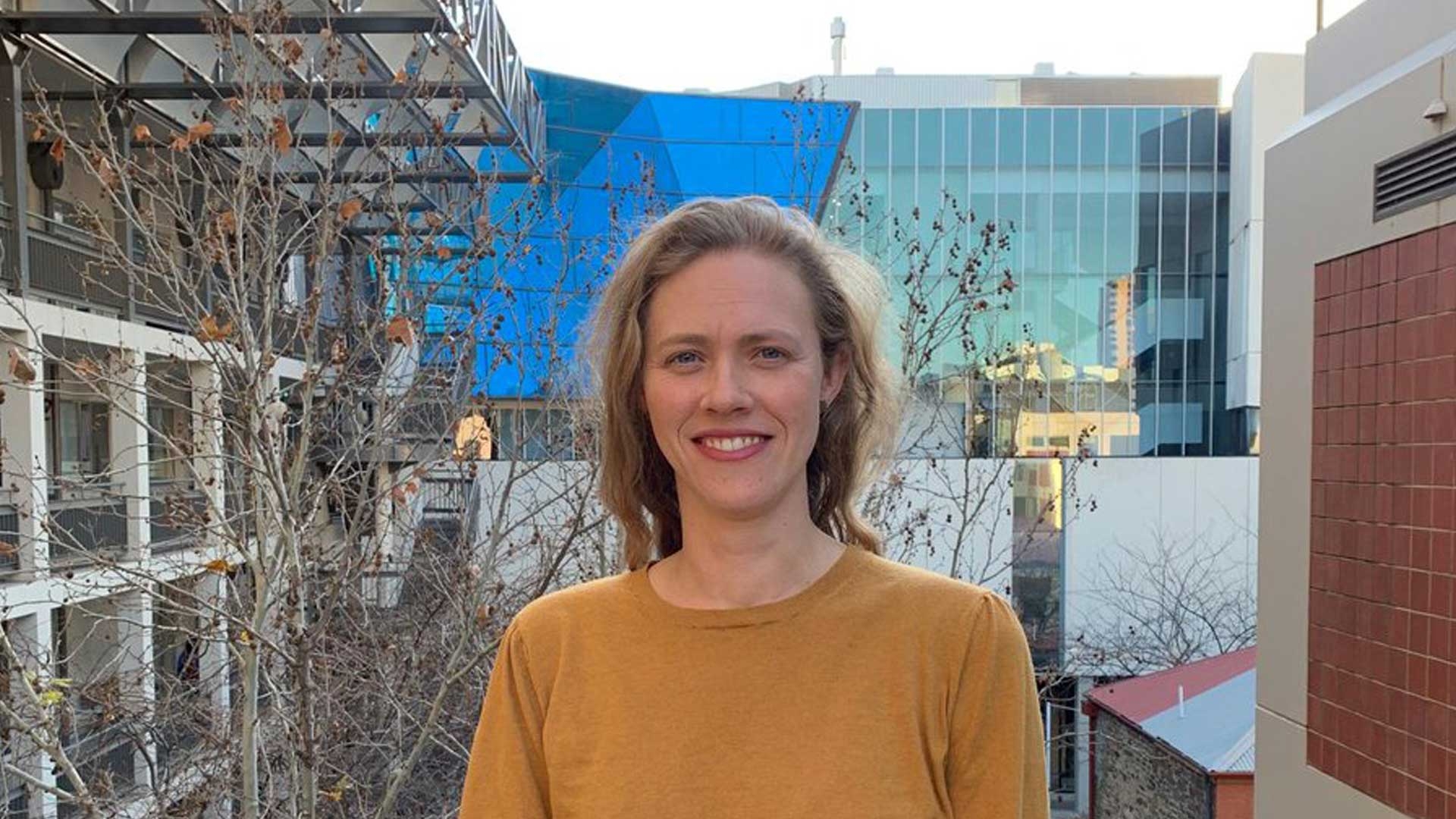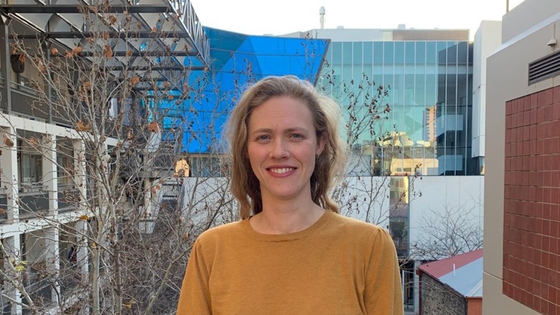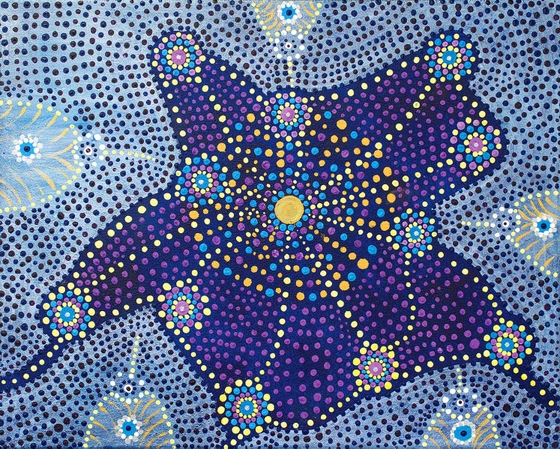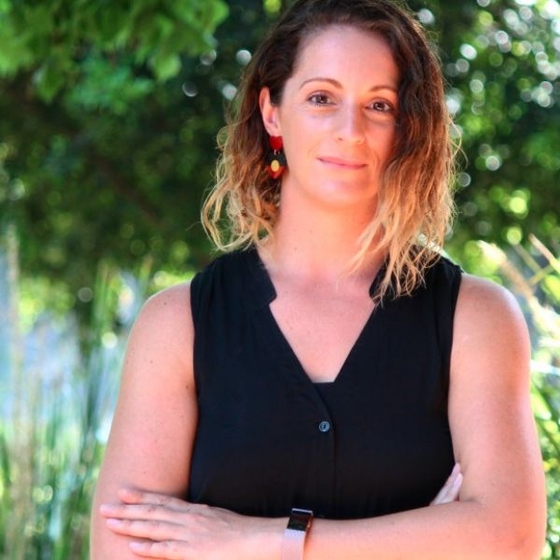
Q&A with Dr Katharine McBride
Keeping the heart strong: Testing a heart health promotion program co-designed by Aboriginal women
Doctor Katharine McBride is the recipient of a 2022 Heart Foundation Aboriginal and Torres Strait Islander Award at the South Australian Health and Medical Research Institute. Through her current research project, she will work in partnership with Aboriginal women to develop a heart health program. The program aims to meet the cultural, social, emotional, wellbeing and physical needs of Aboriginal women.
What are you currently researching?
Aboriginal and Torres Strait Islander women are carers, nurturers and leaders in their community. Heart disease, often occurring at young ages, affects women's capacity to fulfill these roles. With Heart Foundation funding, we will work together with Aboriginal women in northern Adelaide to design and test a program focused on keeping their hearts strong. Aboriginal women will be involved in designing the heart health program to make sure it meets their cultural, social, emotional, physical and wellbeing needs. They will then participate in the 16-week program, and their health will be followed across time. It is our hope that by including women in program design, they will gain a better understanding of heart health and the warning signs, that will help to reduce their risk of heart disease.
What difference will your research make to people’s cardiovascular health in Australia?
Aboriginal and Torres Strait Islander communities are affected by heart disease more than non-Indigenous communities in Australia. This is the result of a complex mix of social and economic factors. Aboriginal and Torres Strait Islander women have a higher risk of developing heart disease compared to other women in Australia, and it often occurs at a younger age. Our research focuses on what is important to women to keep their hearts strong. By working in partnership with Aboriginal women, we hope to reduce their risk of heart disease and improve their understanding of heart health. The heart health promotion program will consider and respect culture, social and emotional wellbeing and physical health. This moves beyond just preventing illness and disease, and aims to create a practical solution to keep the heart strong.
What motivated you to do your research?
I am a non-Indigenous woman with proud Scottish and English heritage. I live and work in Adelaide on Kaurna country. Over the last decade, I have been privileged to work with Aboriginal communities in South Australia and Central Australia. We have identified gaps in services and care for heart health, so we have worked to address these. This research is driven by communities setting the priorities. Aboriginal communities in South Australia have expressed that it is important to keep the hearts of the next generation strong. This means that we need to do more than just treat the disease when the heart becomes sick. Instead, we need to create ways of supporting Aboriginal and Torres Strait Islander communities to keep their hearts strong. Women have also stated that they want heart health care that meets their cultural, social and emotional wellbeing and physical health needs.
Are there any achievements or discoveries from the past year you can share with us?
By working with Aboriginal women, we have developed a better understanding of what heart health means. Aboriginal women have described the heart as healthy when women have strong Aboriginal identity, connection and belonging, a healthy body and life, and access to good health care. Stress, worry and grief, that can occur from racism, government policies and hardship, place people at higher risk of heart disease. We have used this understanding to show how the protective factors can reduce a woman's risk of developing heart disease. However, we have also found that many heart health services are focused on a medical understanding of disease and illness. Together, these findings show the need to design health programs focused on Aboriginal and Torres Strait Islander understandings of heart health.
What role has Heart Foundation funding had in your career journey?
Funding from the Heart Foundation is supporting collaborative, community-driven research with Aboriginal women. As a non-Indigenous woman, this funding means that I can enable the delivery of evidence-based, culturally responsive health care. I am able to do this by working in partnership with women and health services and by building capacity of Aboriginal health professionals. Through this research we aim to develop an evidence-base for health care, while also providing on-the-ground services.
Do you have a message for Heart Foundation supporters?
Funding from the Heart Foundation enables the development and testing of a heart health program for Aboriginal and Torres Strait Islander women, designed by the women to meet their needs. We thank you for your donations that fund research and assist in developing a better understanding of how to respond to the burden of heart disease for Aboriginal and Torres Strait Islander women.
You might also be interested in...

Keeping the heart strong: Testing a heart health promotion program co-designed by Aboriginal women
Keeping the heart strong: Testing a heart health promotion program co-designed by Aboriginal women

Aboriginal heart health website
Visit the St Vincents Hospital NSW and Heart Foundation Aboriginal heart health website for more information

Yanhiyanirra (come to one’s assistance) Quit Pack to support smoking cessation
Dr Michelle Bovill, The University of Newcastle - 2020 Aboriginal and Torres Strait Islander Award
Last updated09 January 2026
Last reviewed20 February 2024